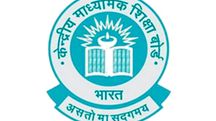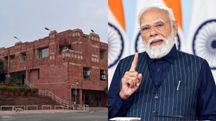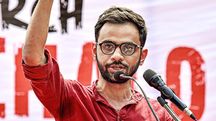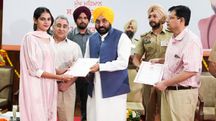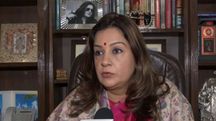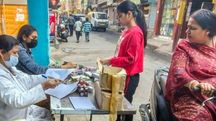Poor, women, youth and farmers are government's four major castes of focus, says Nirmala Sitharaman in Budget speech
Union Finance Minister Nirmala Sitharaman while presenting the Interim Union Budget on Thursday emphasized that the BJP-led Central government, under Prime Minister Narendra Modi's leadership, prioritizes four crucial sectors - the poor, women, youth, and farmers.
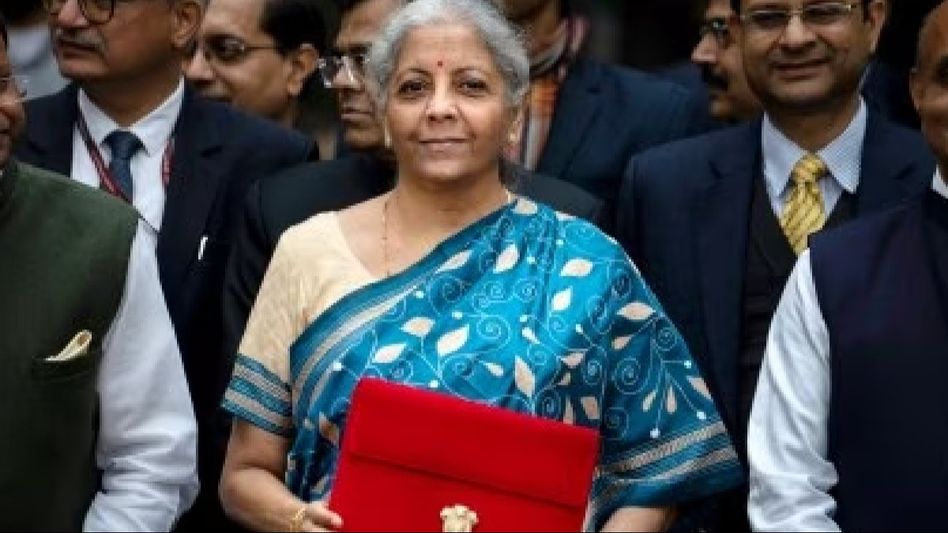
In a significant departure from traditional socio-economic classifications, Finance Minister Nirmala Sitharaman, in her Budget speech for the fiscal year 2024, has articulated the Indian government's focus on what she termed as the nation's "four major castes." These categories are not based on the conventional caste system but rather on pivotal segments of society that are crucial to India's development. The four groups identified by Sitharaman are the poor ('Garib'), women ('Mahilayen'), youth ('Yuva'), and farmers ('Annadata'). Emphasizing their central role in the nation's progress, Sitharaman stated that their needs, aspirations, and welfare are the government's highest priority.
The Modi government's approach to growth has been redefined to prioritize these groups, with the aim of fostering an inclusive and equitable development trajectory. This strategy is seen as a form of 'secularism in action,' where social justice is not merely a political slogan but a tangible governance model. By adopting a saturation approach that aims to cover all eligible individuals, the government seeks to reduce corruption and prevent nepotism, ensuring that resources are distributed fairly and opportunities are accessible to all, regardless of social standing.
The interim budget presented by Sitharaman reflects this focus, with no major tax changes or new schemes announced, respecting the limited tenure of the current government. However, the budget does highlight the government's commitment to addressing systemic inequalities and focusing on outcomes rather than outlays to achieve socio-economic transformation.
Sitharaman's speech also touched upon the government's efforts to empower these key demographic segments through various initiatives. For instance, the Skill India Mission has trained 1.4 crore youth, enhancing their employability and skill set. The government has also taken steps to increase the Minimum Support Price (MSP) for farmers' produce periodically, aiming to enhance real income in rural areas. Additionally, measures such as criminalizing Triple Talaq and advocating for one-third of legislative seats for women demonstrate the government's dedication to women's empowerment.
The finance minister expressed confidence that the government's work would earn it another mandate in the upcoming Lok Sabha elections. She highlighted the government's vision for a 'Viksit Bharat' (Developed India) by 2047, which includes economic policies that foster growth, facilitate inclusive and sustainable development, and create opportunities for all citizens.
In conclusion, the Indian government, under the leadership of Prime Minister Narendra Modi and articulated through the budget speech of Finance Minister Nirmala Sitharaman, has redefined its developmental priorities by focusing on the 'four major castes' of poor, women, youth, and farmers. This approach aims to drive the country forward by empowering these essential segments of society and ensuring their progress is synonymous with the nation's advancement.
Also read: Himanta Biswa Sarma applauds PM Modi and FM Sitharaman for visionary Interim Budget 2024-2025
Copyright©2026 Living Media India Limited. For reprint rights: Syndications Today
